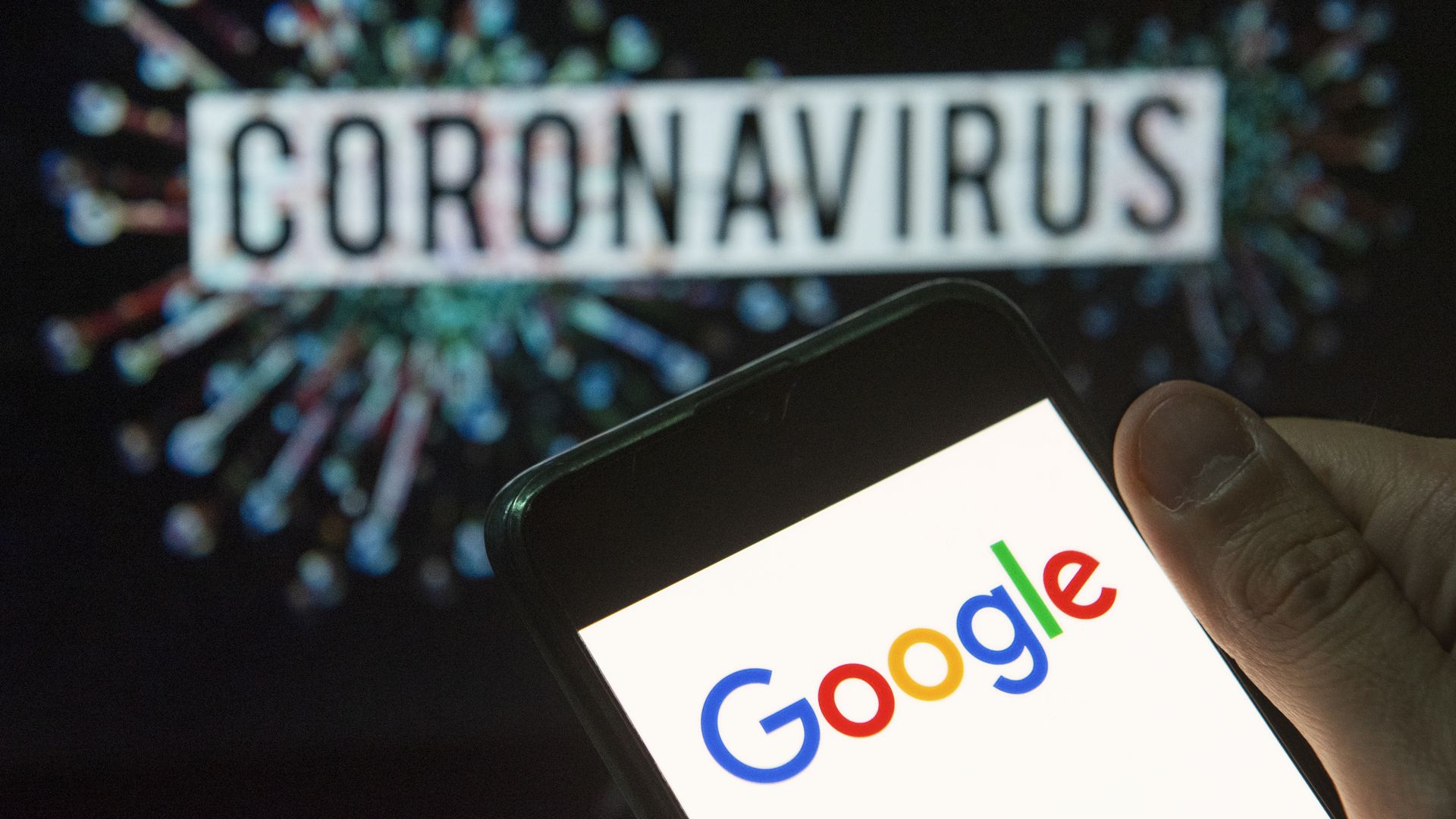Google gives $6.5 million to fact-checkers, misinformation nonprofits
Add Axios as your preferred source to
see more of our stories on Google.

Photo illustration: Budrul Chukrut/SOPA Images/LightRocket via Getty Images
Google said that it's providing more than $6.5 million in funding to fact-checkers and nonprofits fighting misinformation around the world, with an immediate focus on the coronavirus.
Why it matters: Google wants to be proactive throughout the coronavirus crisis to support the spread of accurate and safe information.
The big picture: Google, and many of its Big Tech rivals, have been criticized for not doing enough in the past to elevate quality information during breaking news events and crises.
- As a result, many of those companies, especially Google, are throwing millions of dollars at journalism and small business initiatives amid the COVID-19 outbreak.
- Facebook, for example, recently announced $1 million investment to support fact-checkers that can help promote quality information about the global pandemic.
Details: The donations will come via the Google News Initiative (GNI), a $300 million effort established in 2018 to help journalism thrive in the digital age, and will support fact-checking all over the world.
- Globally, Google will use the funds to increase support for First Draft, a nonprofit that is providing an online resource hub, dedicated training and crisis simulations for reporters covering COVID-19. It's also renewing its core backing of the International Fact-Checking Network (IFCN) to create a new visualization of the database of fact checks published by the CoronavirusFacts Alliance.
- In the U.S., Google will support PolitiFact and Kaiser Health News will expand its health fact-checking partnership to focus on COVID-19 misinformation
- In South and Latin America, it's renewing its support for a verification project called Comprova in Brazil, and it will support LatamChequea, coordinated by Chequeado, to highlight the work of 21 fact-checking organizations in the region.
- In Europe, it will support fact-checkers Full Fact and Maldita.es to amplify experts, share trends and help reduce the spread of harmful, false information. It will also support an initiative called Correctiv in Germany to step up its efforts to engage citizens in the fight against misinformation.
- In India and Africa, Google is funding Data Leads in partnership with BOOM Live in India and Africa Check in Nigeria to leverage data and train 1,000 journalists across India and Nigeria to spot misinformation.
It's also doing more to provide insights to fact-checkers, reporters and health authorities using Google data and visualizations.
- Google is providing funding to SciLine, based at the American Association for the Advancement of Science and the Australian Science Media Centre creators of Scimex.org.
- It's also supporting the creation of a database for pandemic communicators developed by the journalism technology nonprofit Meedan in partnership with public health experts.
- Google will support JSK Journalism Fellowships at Stanford University and Stanford's Big Local News group to create a global data resource for reporters working on COVID-19.
What's next: Google says that in the coming weeks, it will launch a dedicated fact-check section in the COVID-19 News page for India and the U.S., with more countries to come.
